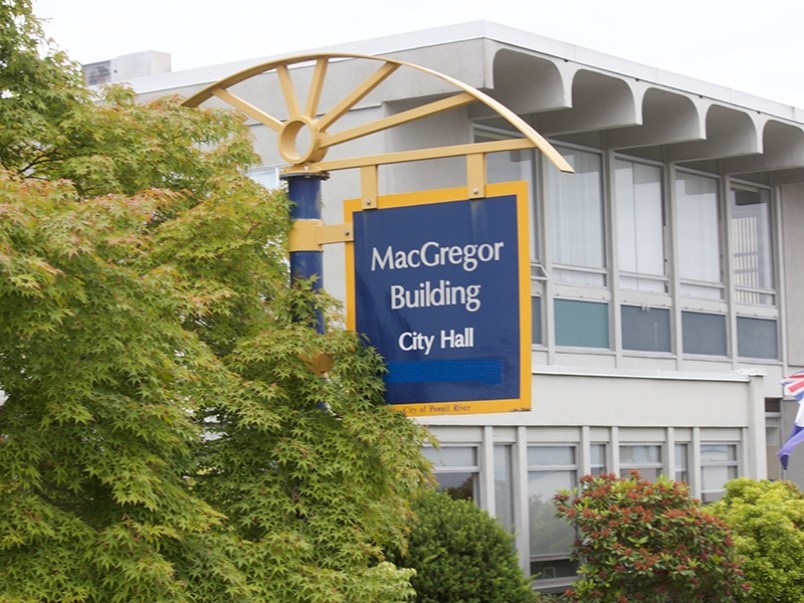City councillors heard about the effects of human sex trafficking and sexual exploitation at a recent meeting.
At the March 30 committee of the whole meeting, Cathy Peters, an anti-trafficking educator, speaker and advocate from North Vancouver, said human sex trafficking and sexual exploitation for the purpose of prostitution is the fastest growing crime in the world and it is here in BC.
“It is the recruiting, transporting, transferring, receiving, holding, concealing, harbouring or exercising control over a person for the purpose of exploiting them,” said Peters. “The key word is exploitation. This is modern day slavery.”
Peters offered some statistics. She said 13 years old is the average age of recruitment into the sex industry and it’s younger for indigenous girls. She said in Surrey and Vancouver the target age is 10, 11 and 12-year-old girls. COVID-19 has made matters worse, she added, and traffickers are organized and sophisticated.
Peters said indigenous people are severely overrepresented in the sex industry.
“This is the worst case of systemic racism in our country,” said Peters.
Peters said 95 per cent of those involved in prostitution want to leave.
“It is not a choice and it is not a job,” said Peters. More than 80 per cent have housing needs and require drug rehabilitation because drugs and the sex industry go together, added Peters. “I’ve been raising awareness about sexual exploitation and now, specifically, child sexual exploitation and trafficking to every city council, MLA, MP and police agency in BC,” said Peters.
Vancouver and Toronto are global sex tourism hotspots and Canada is now known as a child sex tourism destination, said Peters, and the public is unaware, she added.
Pornography is fuelling the sex industry and creating the market for commercially paid sex, said Peters. Men and boys are the buyers of sex and are the key to end exploitation, she added.
She asked what could be done in Powell River. She suggested training business licensing managers what to look for when granting business licences.
“You have control over the type of business activity in your community,” said Peters. “Council needs to be aware because no community is immune. BC is getting further behind every province in Canada in both enforcing the federal law and raising awareness with prevention education. Therefore, BC and the Lower Mainland are the best place in Canada to sell women and children for sex.”
Peters said BC is a magnet for criminals because the province provides free drugs and free housing.
“The crime is going to get much worse here,” said Peters.
She had three asks for city councillors. She said she wanted to present to other community agencies and governments, plus the MLA and MP for the area. She said she was looking for introductions to those groups and individuals. She asked the city to alert the premier and solicitor general that this crime has to be a priority in BC to address. She said the province also needs an interagency human sex trafficking task force and she asked that a letter of support be written to her.
Mayor supports cause
Mayor Dave Formosa said he did not have a problem supporting Peters and her cause in the way she was asking.
Councillor Cindy Elliott said she didn’t believe addressing humans who are suffering, making sure they have appropriate housing, is an invitation to criminals.
“That part is the knee-jerk that creates so much angst in the harm-reduction community,” said Elliott. “I think the criminalization of drug use tends to drive people to the underground rather than into health care, which is what our goal here in BC is.
“I would support the task force you are looking for and I’m absolutely shocked we don’t already have one. Education for all of our young people is something we should do and there should be a task force on the whole internet crime section as well. I support our council writing a letter of support for those things.”
Elliott said she thinks compassionate health care is what should be happening across Canada.
“I don’t think the message that we are being a magnet is conducive to solving this issue,” she added.
Councillor George Doubt said he was in support of writing to the provincial government to encourage creating a provincial interagency task force to deal with human trafficking. He said he was not in support of everything in the presentation. He said he is in support of decriminalizing drug use and turning it into a health care question rather than a criminal law question. Additionally, he’s in support of affordable housing because he believes everybody deserves a place to live.
“In those two instances, I disagree with the presentation,” said Doubt. “I don’t think affordable housing is an invitation to criminal activity. If we are writing a letter to the provincial government to support a human trafficking task force, I’m totally in favour of that, but I’m not going to endorse everything in the presentation.”
Peters’ requests will be considered in motion to come before city council at its April 15 meeting.



